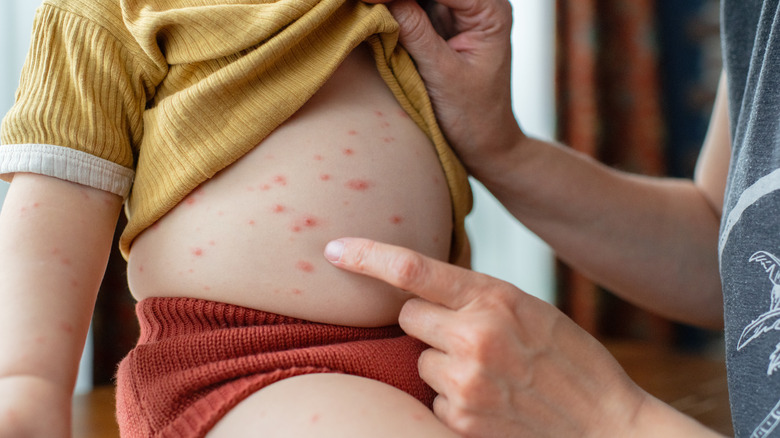Don't Take Ibuprofen If You Have This Common Illness
Ibuprofen is a nonsteroidal anti-inflammatory drug (NSAID) that is popular for its ability to effectively alleviate pain, reduce fever, and address inflammation by inhibiting the production of specific chemicals in the body. It's handy for headaches, muscle aches, and all sorts of discomforts. But here's the catch: it can be a bit tricky when it comes to certain illnesses.
Take chickenpox, for example, that not-so-fun, highly contagious viral infection that causes an itchy rash and flu-like symptoms. When you toss ibuprofen into the mix, things can get a bit complicated. While ibuprofen could help decrease symptoms of chickenpox, such as fever and headache, it can cause some serious and even life-threatening issues, especially for the little ones dealing with it. So, while ibuprofen is usually a reliable helper for everyday pains, it's wise to consider other options. Knowing about the potential complications can make dealing with chickenpox a bit simpler and definitely safer.
Risks associated with ibuprofen and chicken pox
According to the American Academy of Pediatrics, taking ibuprofen when you have chickenpox has been shown to increase the risk of serious skin infections, such as necrotizing fasciitis (per the Centers for Disease Control and Prevention). A study published in the Italian Journal of Pediatrics in 2021 found that ibuprofen is associated with severe necrotizing soft tissue infections (NSTI) during the chickenpox course.
NSTIs are serious infections that affect the soft tissues in our body. These infections can cause severe tissue damage and are characterized by signs of toxicity. According to a 2017 report in the New England, NSTIs can take on different forms, such as necrotizing fasciitis, myositis, and cellulitis. These infections develop due to the presence of dead and damaged tissue and require fast diagnosis and treatment with surgery and antibiotics. If left untreated, NSTIs can be fatal (per Cleveland Clinic).
Managing chickenpox symptoms
For otherwise healthy children, chickenpox often needs no medical treatment. For the most part, the disease just needs to run its course. For those at high risk of complications, such as newborns, pregnant women, or people with weakened immune systems, providers sometimes prescribe antiviral medicine to lessen the symptoms of chickenpox (per Penn Medicine).
If your child is having trouble stopping the urge to scratch, try trimming their fingernails and consider having them wear gloves at night. This can help prevent scarring and promote healing. Scratching can also increase the risk of infection. To help ease the itchiness, the Mayo Clinic recommends a cool bath with added baking soda or uncooked oatmeal. Calamine lotion dabbed on the itchy spots can also provide relief.
According to Seattle Children's, you can use acetaminophen (Tylenol) to reduce aches and fever. Call your doctor if a fever lasts longer than four days and is higher than 102 degrees Fahrenheit. Lastly, don't give aspirin to children and teenagers with chickenpox; doing so can lead to a serious medical problem called Reye's syndrome.



